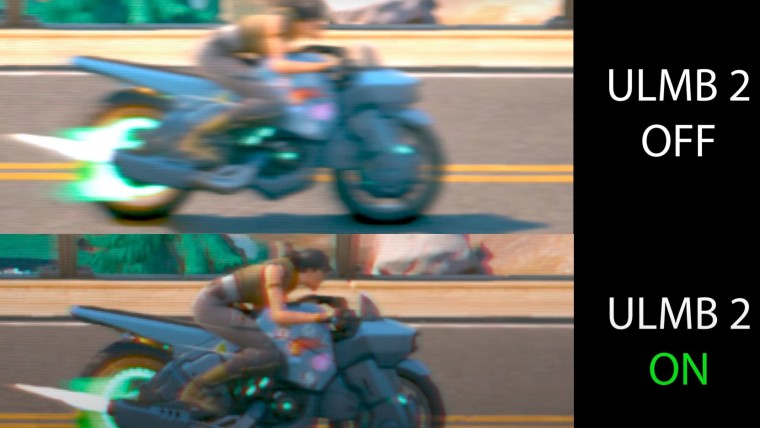
At Computex today, NVIDIA announced a new feature for more recent monitors that use its G-Sync technology. It's called Ultra Low Motion Blur 2 (ULMB 2) and it's a massive improvement over the original ULMB to cut down on motion blur issues in high-end PC gaming.
NVIDIA first launched the original ULMB in 2015, back when PC gaming monitors had a much lower average refresh rate than they do today. The first ULMB cut down on a monitor's backlight 75 percent of the time which was called backlight strobing.
While the picture was clearer, it also reduced its brightness and also caused the refresh rate of the display to be reduced. NVIDIA said competitive PC gamers wanted a brighter screen with a high refresh rate so the original ULMB was rarely used.
Now there's the new ULMB 2, which can also use backlight strobing, while still keeping the image bright and with a high refresh date. NVIDIA states:
With ULMB 2, gamers get an effective motion clarity of over 1000 Hz with these improvements, calculated as the refresh rate of the monitor multiplied by one over the duty cycle [Effective Motion Clarity = Refresh rate * (1 / Duty Cycle)].
For a 360 Hz monitor with ULMB 2, the effective motion clarity is actually 1440 Hz. That means in order to obtain the same level of motion clarity without ULMB 2, gamers would need a classic panel capable of 1440 Hz.
The bad news for gamers is that for the moment, only a couple of PC gaming monitors are on sale that can support ULMB 2. They include the Acer Predator XB273U F - 27-inch 1440p 360 Hz monitor, and the ASUS ROG Swift 360Hz PG27AQN 27-inch monitor.
Both will require a firmware update to enable the ULMB 2 feature. Two more monitors, the 25-inch ASUS ROG Swift Pro PG248QP and the 27-inch AOC AGON AG276QSG G-SYNC Monitor, are coming soon that will also support ULMB 2.
As an Amazon Associate when you purchase through links on our site, we earn from qualifying purchases.



















3 Comments - Add comment